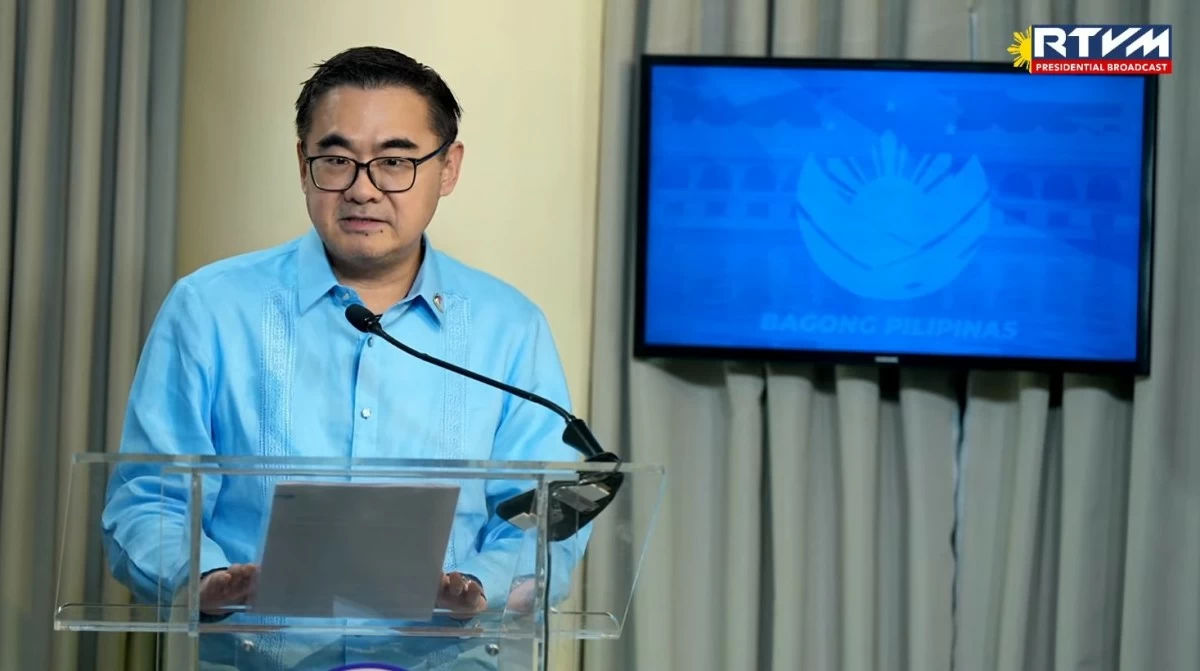Will the Philippines Navigate Trade Talks and Reforms After 20% US Tariff?

**The Philippines' Commitment to Economic Reform and Trade Partnerships Amid Tariff Challenges**
In a world characterized by complex trade dynamics, the Philippines stands resilient, committed to economic reform and the expansion of trade partnerships. This commitment persists even in the face of challenges such as the recent decision by Washington to impose a 20 percent tariff on Philippine exports, effective August 1. The implications of this tariff and the Philippines’ strategic responses warrant a closer examination.
Understanding the Tariff Impact on Philippine Exports
The announcement of a 20 percent tariff on Philippine exports by the United States has raised concerns among various stakeholders in the Philippine economy. The tariff affects a range of products, from agricultural goods to manufactured items. Here are some key points regarding the potential impact of this tariff: - **Economic Disruption**: The tariff poses a risk of disrupting the flow of exports, which are a vital component of the Philippine economy. Sectors heavily reliant on exports may face decreased competitiveness in the U.S. market. - **Supply Chain Adjustments**: Businesses may need to reevaluate their supply chains and explore alternative markets to mitigate the impact of the tariff. This could lead to increased operational costs or the need for innovation in product offerings. - **Inflationary Pressures**: Higher tariffs can lead to increased prices of goods for consumers, potentially contributing to inflationary pressures within the Philippines. This effect could ripple through the economy, impacting purchasing power and consumption.The Philippines’ Economic Reform Agenda
In response to external challenges, the Philippine government remains steadfast in its economic reform agenda. The goal is to enhance resilience and sustainability, ensuring long-term growth despite immediate obstacles. Key elements of this reform agenda include:1. Infrastructure Development
Investing in infrastructure is critical for boosting economic productivity. The government is focusing on: - **Transportation Networks**: Enhancing road, rail, and port infrastructure to improve logistics and reduce transport costs. - **Digital Infrastructure**: Expanding internet access and digital services is essential for fostering innovation and attracting foreign investment.2. Strengthening Local Industries
To reduce reliance on exports to any single market, the Philippines aims to strengthen local industries. This includes: - **Support for Small and Medium Enterprises (SMEs)**: Providing financial assistance, training, and access to technology to empower SMEs. - **Promotion of Local Products**: Initiatives to encourage consumption of domestically produced goods can help stabilize the economy during downturns.3. Trade Diversification
The Philippines is actively seeking to diversify its trade partnerships. This includes: - **Exploring New Markets**: Engaging with countries in Asia, the Middle East, and Africa to identify new opportunities for trade. - **Strengthening Existing Partnerships**: The Philippines is keen on enhancing relationships with current trade partners to ensure stability and mutual benefits.Expanding Trade Partnerships
Despite the tariff challenges posed by the U.S., the Philippines is exploring various avenues to expand its trade partnerships. Here are some notable strategies:1. Regional Trade Agreements
The Philippines is a member of several regional trade agreements, which can help offset the impact of tariffs. Key agreements include: - **ASEAN Free Trade Area (AFTA)**: This agreement facilitates trade among Southeast Asian nations, providing access to a larger market. - **Regional Comprehensive Economic Partnership (RCEP)**: This is the world's largest free trade agreement, encompassing multiple Asia-Pacific nations, and can help the Philippines tap into broader markets.2. Bilateral Trade Agreements
Pursuing bilateral trade agreements with specific countries can lead to favorable terms that benefit Philippine exports. Potential areas of focus include partnerships with: - **Japan**: A strong ally with substantial investment interests in the Philippines. - **Australia**: Collaborations in agriculture and technology can enhance trade relationships.3. Engaging in Global Value Chains
Participating in global value chains allows the Philippines to become integrated into international markets effectively. Strategies include: - **Innovation and Technology Transfer**: Encouraging foreign companies to invest in local operations can lead to technology transfer and skill development. - **Quality Standards Compliance**: Ensuring products meet international quality standards enhances competitiveness in global markets.Challenges Ahead
While the Philippines has laid out a comprehensive plan to navigate the economic landscape, several challenges remain: - **Global Economic Uncertainty**: Fluctuations in global economic conditions can impact demand for Philippine exports. - **Domestic Political Climate**: Political stability is crucial for sustained economic reform and investment. - **Natural Disasters**: The Philippines is prone to natural calamities, which can disrupt production and trade flows.Conclusion: A Resilient Path Forward
The Philippines' commitment to economic reform and expanding trade partnerships is evident, even in the face of significant challenges like the recently imposed tariffs by the U.S. By focusing on infrastructure development, strengthening local industries, and diversifying trade partnerships, the country is taking proactive steps to ensure its economic resilience and sustainability. As the Philippines navigates these complexities, it sets an example for other nations facing similar trade challenges. The future of the Philippine economy will depend on its ability to adapt, innovate, and forge strong international relationships. What steps do you think the Philippines should take to further enhance its economic resilience in the face of international trade challenges? #PhilippinesEconomy #TradePartnerships #EconomicReformPublished: 2025-07-13 00:31:20 | Category: Uncategorized



